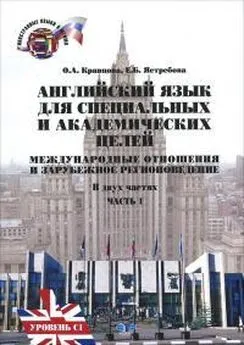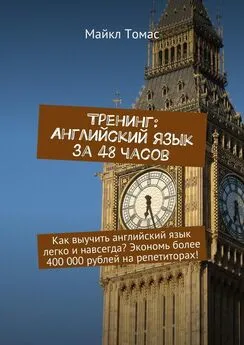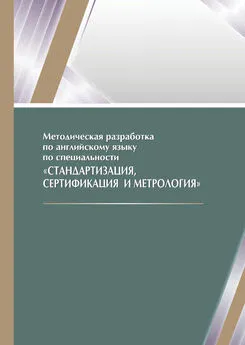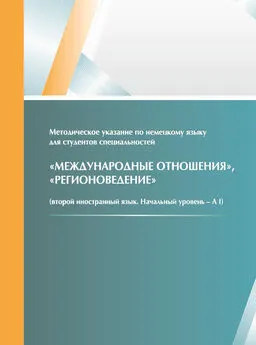Ольга Кравцова - Английский язык для специальных и академических целей: Международные отношения и зарубежное регионоведение. Часть 1
- Название:Английский язык для специальных и академических целей: Международные отношения и зарубежное регионоведение. Часть 1
- Автор:
- Жанр:
- Издательство:МГИМО-Университет
- Год:2015
- ISBN:978-5-9228-1210-8
- Рейтинг:
- Избранное:Добавить в избранное
-
Отзывы:
-
Ваша оценка:
Ольга Кравцова - Английский язык для специальных и академических целей: Международные отношения и зарубежное регионоведение. Часть 1 краткое содержание
Адресовано студентам четвертого курса факультетов и отделений международных отношений и зарубежного регионоведения.
Английский язык для специальных и академических целей: Международные отношения и зарубежное регионоведение. Часть 1 - читать онлайн бесплатно полную версию (весь текст целиком)
Интервал:
Закладка:
By building the EU in an incremental way, the technocrats managed to lower political temperatures in national capitals and find agreement among bureaucrats who were more interested in negotiating deals than grandstanding for the national media. They first created a coal and steel community, then a customs union, then a single market and finally a single currency. But, as the EU matured as a political project, its very success as a bureaucratic phenomenon fuelled a populist backlash at a national level.
It started in Britain in the 1980s when Margaret Thatcher famously wielded her handbag around Europe. But what began as a localised phenomenon gradually grew following Maastricht into a pan-European force embodied today by such disparate forces as Geert Wilders, the True Finns, Umberto Bossi and Marine Le Pen. There are now populists from the north, south, east and west as well as from the left and right. But although they have different ideologies, they all share a sense that politics has become the preserve of elites who are serving themselves rather than common people. In particular, they portray the EU as a conspiracy to build “Europe against the people”. In its place, the populists aim to mobilise the “people against Europe” — leading, in the words of one senior Dutch diplomat, to the “democratic destruction of the EU”.
The Reader
For many populists, the EU looks after the welfare of big business and banks; removes border controls and protects minorities at home; while promoting globalisation abroad. According to Le Pen, this is leading to a new split between so-called mainstream parties and the new populist movements: “Both left and right are for the EU, the euro, free trade and immigration,” she has said. “For 30 years, [they] have been the same; the real fracture is now between those who support globalisation and nationalists.” 64 64 Charles Grant, “Marine Le Pen and the rise of populism”, Centre for European Reform, 20 July 2011, available at http://centreforeuropeanreform.blogspot.com/2011/07/marine-le-pen-and-rise-of-populism.html .
Technocracy and populism are mirror images: one is managerial, the other charismatic; one seeks incremental change, the other is attracted by grandiose rhetoric; one is about problem solving, the other about the politics of identity. They also have different models of legitimacy. The technocrats have sought to build legitimacy for the EU by trying to deliver positive outcomes for different interest groups — businesses, farmers, students, etc. Populism, on the other hand, has emerged during a period in which politics is organised not in factories or party meetings but on the internet. Its claims about distribution centre around identity.
However, although European technocracy and national populism are opposites, they are also mutually reinforcing. At a European level we can see this in the saga of the Lisbon Treaty. In 2005, the people of France and the Netherlands rejected the European constitution; Europe's leaders responded with a technocratic solution that sidestepped public opinion. Thus, on the one hand, as EU leaders try to remove European integration from national politics, the EU's legitimacy becomes more brittle, which in turn means that policymakers want to evade public opinion even more. On the other hand, as the EU becomes even more technocratic, the calls for democracy and referendums become stronger, which in turn creates a space for populist parties to emerge. The situation in Italy and Greece shows the reverse: that national populism can lead to a technocratic backlash. Here, European markets, following a signal from Angela Merkel and Nicolas Sarkozy, forced
Berlusconi and Papandreou out of office. Berlusconi was being punished for his populism and Papandreou for failing to develop the power to govern. [...]
Thus, from Athens to Helsinki, besieged elites are now caught between the destructive power of feral markets and Eurosceptic populists. Germany seems to be bucking the trend as its political class rediscovers its traditional pro-European rhetoric while its technocrats in the ECB and the Constitutional Court make common cause with the tabloids to set a Eurosceptic agenda. Across the rest of Europe the populists define the political options for all parties. In Slovakia, the ultimate cosmopolitan, European-minded government found itself opposing the bailout of Greece (although it claimed that it was anti-European to expect a poor country like Slovakia to bail out the richer debtor-nations). In Finland, a coalition of passionate pro-European politicians signed a deal on collateral that nearly sank the EU's entire plan to save the euro.
The Reader
As a result, there is a gulf between what many pro-European mainstream politicians think they should do and what they think they can sell to the public. Consequently, they have hastily roped together inadequate solutions: stress tests lacking credibility; a credit facility hampered by stringent rules; and the emission of bonds that aren't quite Eurobonds. These solutions fell far short of what was needed to provide a solution to the crisis, but because they were the most that could be forced through loopholes in the Lisbon Treaty, they were all that was politically possible.
Given the political constraints they face at home, European leaders have focused on fixing the institutional crisis that lies behind the euro's travails rather than grasping the political challenges. Four routes towards a solution are emerging, based on four distinct procedural approaches: asymmetric integration by working around the existing treaties; a smaller, more integrated eurozone based on the existing treaties; political union through treaty change; and a deal among a new vanguard through a Schengen-style treaty. All four will fundamentally change the political and institutional settlement that today's Europe has inherited from Maastricht. Each has advantages and disadvantages. But whichever of the four options Europe ultimately chooses, the challenge will be to solve the acute euro crisis without at the same time exacerbating the chronic crisis of declining European power.
How Britain could fall out of the European Union, and what it would mean
http://www.economist.com/news/briefing/21567914-how-britain-could-fall-out-european-union-and-what-it-would-mean-making-break
Dec 8th 2012 | From the print edition
BRITAIN has never been too keen on tying the knot with Europe. It sat aside in the 1950s as Germany, France, Italy and the Benelux countries forged a single market in coal and steel, which became a broader common market. It eventually joined, in 1973, largely because Europe seemed to be where the money was. Britons still think of their relationship with Europe as a transaction. But their feelings about the costs and benefits of membership have changed utterly.
Europe is no longer the thriving economic club that Britain joined 40 years ago. The euro-zone crisis has exposed the lack of dynamism in much of Europe (though Britain itself is hardly booming) and the British also feel sidelined, as countries that use the single currency are pulled more tightly together. Britons have come to associate the EU with the uncontrolled immigration of Poles and other east Europeans, seemingly to every village. Although many political leaders are determined to stop it happening, a British exit from Europe is coming to seem ever more possible.
If Britain falls out of the EU, it may find itself completely outside the single market. It might try to stay in the European Economic Area (EEA), a free-trade club that also includes Iceland and Norway. Or it could leave both the EU and the single market, but attempt to recreate a free-trade relationship through bilateral agreements. In this article we explain what each would mean for British business and the economy. But, first, how could an exit happen?
The likeliest trigger is a referendum. David Cameron, Britain's prime minister, is under enormous pressure to call one from his own Conservative Party, which dominates Britain's coalition government. Last year 81 Tory MPs voted for a referendum on Britain's EU membership. “It's moved very fast,” says John Redwood, a veteran critic of the EU. “People used to call me an extreme Eurosceptic. Now I'm a moderate.”
The Reader
Truly fervent Eurosceptics seek a referendum because they want to quit the EU. Other Tories want one to spike the guns of the UK Independence Party (UKIP), which campaigns for an exit. UKIP, a once-minor party that came second to Labour in two by-elections on November 29th, takes votes from all parties but most terrifies Conservative MPs. If the party does well in the next European Parliament elections, due in 2014, the pressure on Mr Cameron will increase.
He is already bending. In September the prime minister hinted that Britons might have an opportunity to give “fresh consent” to their country's place in a looser union — a rather fuzzy suggestion that is unlikely to dampen calls for a starker question. Some Tory cabinet ministers now expect the party to include a promise of an “In-Out” referendum on Europe in its 2015 general-election manifesto.
That might persuade Labour to follow suit — which is the second referendum scenario. Although the party is broadly pro-European, some Labour strategists have been urging Ed Miliband, its leader, to promise a referendum all the same, chiefly to pile pressure on Mr Cameron but also to stay on the right side of public opinion. “Whatever our position on Europe, we cannot be seen as the anti-referendum party,” a senior Labour figure says.
The third scenario is already in play, thanks to the 2011 European Union Act. Passed by the coalition, this dictates that a referendum must be held on any new EU treaty that shifts power from Westminster to Brussels. The EU is acutely aware of this obstacle, so where treaty change is envisaged, it is trying to focus it as narrowly as possible on the euro zone, of which Britain is not a member. But the EU's creeping claim on its constituents' sovereign powers suggests that this “referendum lock” could be activated. The next treaty change, which could take place in 2015 or 2016, will be the moment for Mr Cameron (if he is re-elected) to try to repatriate some powers from Brussels in the “new settlement” he seeks with Europe. If Britons voted to reject the revised treaty there would be redoubled pressure for a second referendum, on their membership of the European club.
There is a fourth scenario: simple diplomatic miscalculation. A year ago, at a summit where they agreed on a fiscal compact, almost all other EU leaders banded together to sidestep a British veto. If that were to happen again on an issue that Britons care more deeply about, Mr Cameron may face irresistible pressure to call an early referendum.
The early signs are that Britons would opt to push off. YouGov's latest poll on the issue suggests that 49% would vote to leave, whereas only 32% would choose to stay (the rest are unsure). One senior Tory, who wants Britain to stay in, says blankly that it would be impossible to win a referendum at the moment.
The leaders of all three main parties, backed by business and trade unions, could try to woo Britons to Europe. But they would have plenty of opposition, and not just from other MPs. When Britain last voted on Europe, in 1975, every national newspaper except the Morning Star campaigned for an “In” vote. That will not be repeated. Britain's two biggest-selling dailies, the Daily Mail and the Sun — combined circulation, 4.5m — are deeply Eurosceptic.
The Reader
What would make the vote unpredictable is that Britons cannot have what they really want. If offered a “detached relationship that is little more than a free-trade agreement”, according to the same YouGov poll, only 26% would still opt for the exit. The biggest group of respondents, 46%, would accept those looser terms. But continental leaders are unwilling to grant Britain full access to the single market without the costly bits. Germany's chancellor, Angela Merkel, says she dearly wants to keep Britain in the EU — but “as a good partner”. In the run-up to a promised referendum, Mr Cameron could win only trifling concessions. That might convince some Britons that life outside the EU would be difficult; but it might equally inflame Eurosceptic opinion and make an “out” vote more likely.
Читать дальшеИнтервал:
Закладка:










